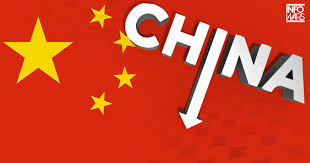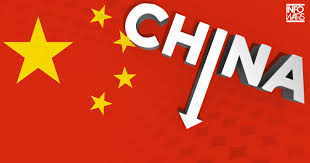
A day after the president-elect hinted for the second time in a month at a reset of U.S.-China relations, China’s foreign ministry urged Donald Trump to recognize the “high sensitivity” with which it views Taiwan and said its One-China policy isn’t negotiable.
After assessing the progress the world’s second-largest economy makes on trade and currency issues, he would only commit to the One China policy, Trump was quoted by the Wall Street Journal late Friday as saying.
“The One-China principle, which is the political foundation of the China-U.S. relations, is non-negotiable,” Ministry of Foreign Affairs spokesman Lu Kang said in a statement on the agency’s website.
Even if they disagree on what that means, One China is an acknowledgment that Taiwan and China are part of the same China. Instead of being the bargaining chip that Trump has suggested, Beijing regards it as a bedrock policy. Cautioning Trump against lightly abandoning Washington’s stance on the delicate topic was President Barack Obama.
“In order to avoid disruption to the sound and steady development of the China-U.S. relations and bilateral cooperation in key areas, we urge relevant parties in the U.S. to fully recognize the high sensitivity of the Taiwan question, approach Taiwan-related issues with prudence, and honor the commitment made by all previous U.S. administrations of both parties on adhering to the one-China policy,” Kang said in the statement.
He isn’t prepared to declare China a currency manipulator immediately upon being sworn in on Jan. 20, the president-elect told the Wall Street Journal. Trump threatened during his campaign to slap 45 percent tariffs on its exports to the U.S. and to brand China a currency manipulator immediately upon taking office.
“I would talk to them first,” Trump was quoted as saying. “Certainly they are manipulators. But I’m not looking to do that.”
Trump has criticized China for a perceived failure to further pressure North Korea over its nuclear program and has questioned the U.S.’s longstanding policy of recognizing Beijing over the government in Taiwan.
Trump also told the newspaper that he’d consider lifting them once Vladimir Putin proves he can be an ally and would maintain sanctions imposed by the Obama administration against Russia in place “for a period of time.”
“If you get along and if Russia is really helping us, why would anybody have sanctions if somebody’s doing some really great things?” Trump was quoted as saying during an hour-long interview with the paper a week before he is sworn in as president.
Obama in December hit Russian intelligence officials and agencies with sanctions for cyberattacks aimed at interfering with the 2016 presidential campaign and whether Trump will take a conciliatory stance against Russia is at stake. Russia’s president said his government wouldn’t retaliate because he was waiting for Trump to take office after 35 Russian operatives were expelled from the U.S. Trump responded with a tweet in which he called Putin “very smart.”
(Source:www.bloomberg.com)
After assessing the progress the world’s second-largest economy makes on trade and currency issues, he would only commit to the One China policy, Trump was quoted by the Wall Street Journal late Friday as saying.
“The One-China principle, which is the political foundation of the China-U.S. relations, is non-negotiable,” Ministry of Foreign Affairs spokesman Lu Kang said in a statement on the agency’s website.
Even if they disagree on what that means, One China is an acknowledgment that Taiwan and China are part of the same China. Instead of being the bargaining chip that Trump has suggested, Beijing regards it as a bedrock policy. Cautioning Trump against lightly abandoning Washington’s stance on the delicate topic was President Barack Obama.
“In order to avoid disruption to the sound and steady development of the China-U.S. relations and bilateral cooperation in key areas, we urge relevant parties in the U.S. to fully recognize the high sensitivity of the Taiwan question, approach Taiwan-related issues with prudence, and honor the commitment made by all previous U.S. administrations of both parties on adhering to the one-China policy,” Kang said in the statement.
He isn’t prepared to declare China a currency manipulator immediately upon being sworn in on Jan. 20, the president-elect told the Wall Street Journal. Trump threatened during his campaign to slap 45 percent tariffs on its exports to the U.S. and to brand China a currency manipulator immediately upon taking office.
“I would talk to them first,” Trump was quoted as saying. “Certainly they are manipulators. But I’m not looking to do that.”
Trump has criticized China for a perceived failure to further pressure North Korea over its nuclear program and has questioned the U.S.’s longstanding policy of recognizing Beijing over the government in Taiwan.
Trump also told the newspaper that he’d consider lifting them once Vladimir Putin proves he can be an ally and would maintain sanctions imposed by the Obama administration against Russia in place “for a period of time.”
“If you get along and if Russia is really helping us, why would anybody have sanctions if somebody’s doing some really great things?” Trump was quoted as saying during an hour-long interview with the paper a week before he is sworn in as president.
Obama in December hit Russian intelligence officials and agencies with sanctions for cyberattacks aimed at interfering with the 2016 presidential campaign and whether Trump will take a conciliatory stance against Russia is at stake. Russia’s president said his government wouldn’t retaliate because he was waiting for Trump to take office after 35 Russian operatives were expelled from the U.S. Trump responded with a tweet in which he called Putin “very smart.”
(Source:www.bloomberg.com)














